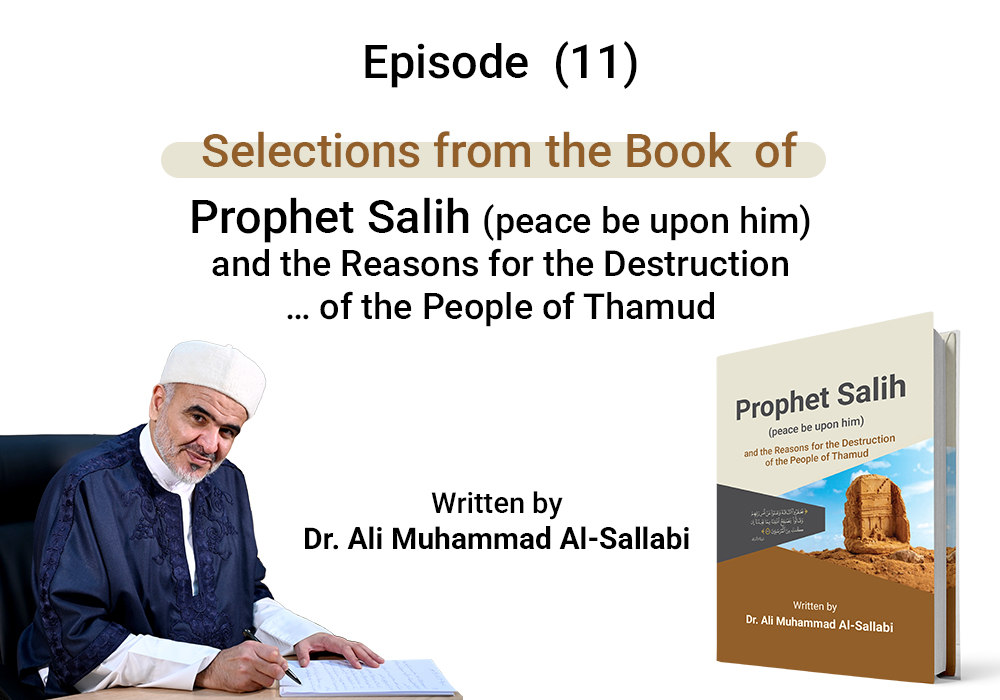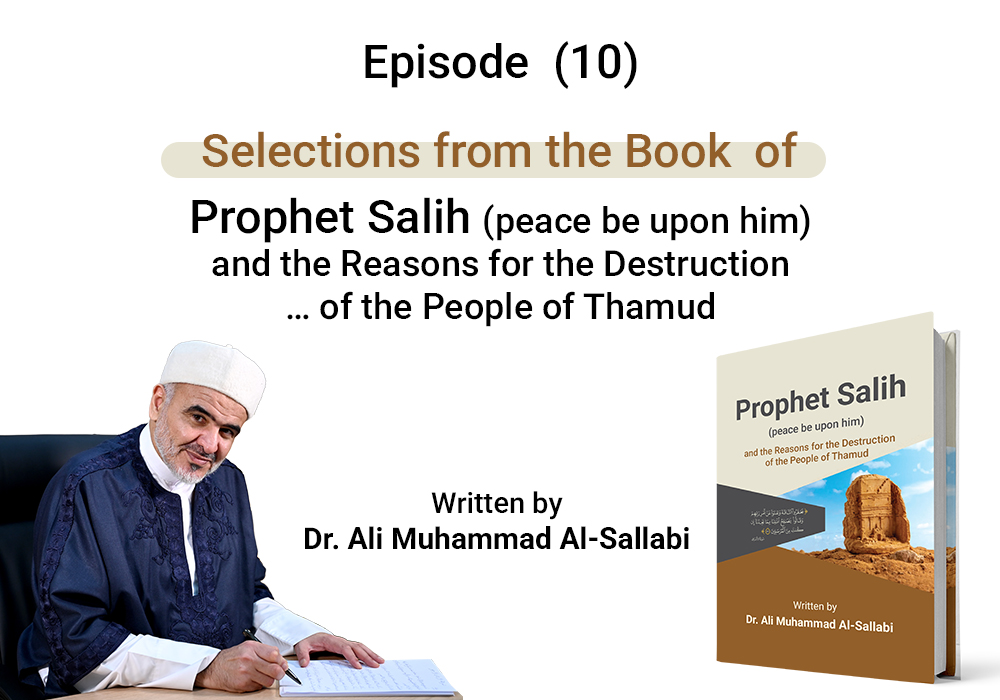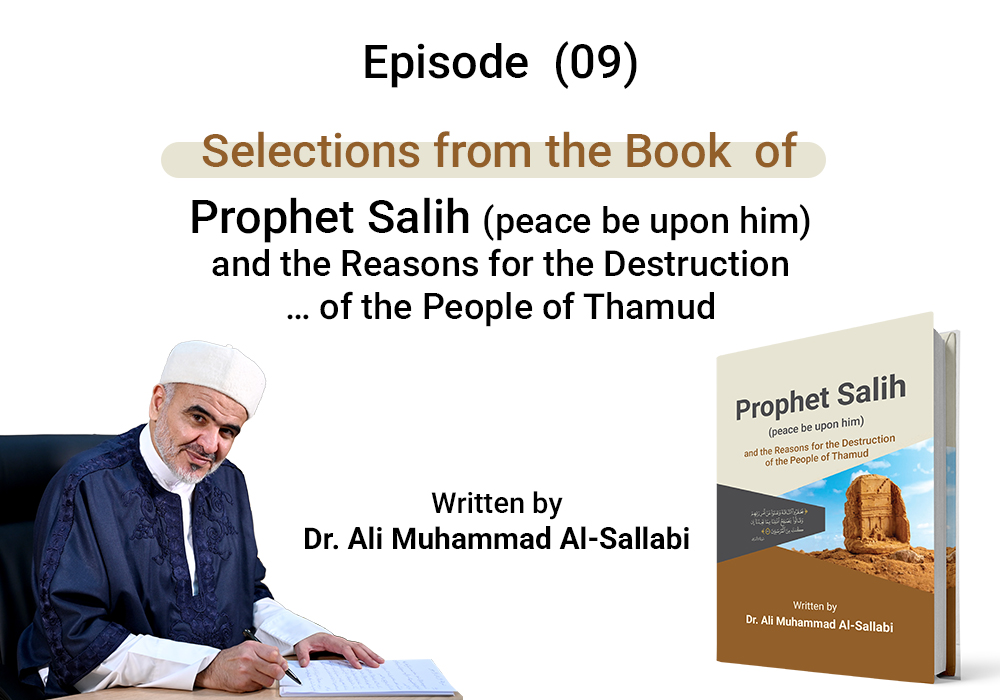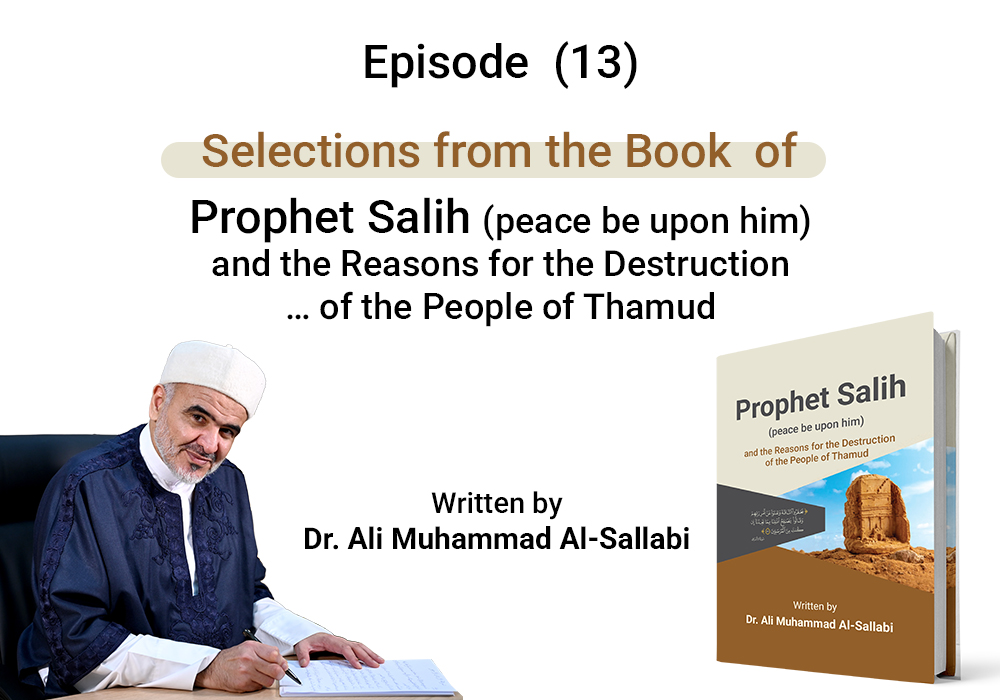Definition of Repentance
Selections from the Book Prophet Salih (peace be upon him) and the Reasons for the Destruction of the People of Thamud …
Written by Dr. Ali Muhammad al-Sallabi...
Episode (11)
- Al-Qurtubi (may Allah have mercy on him) defined repentance as remorse from the heart, immediate abandonment of the sin, and a firm resolve never to return to it, all out of shyness before Allah.
- Ibn Kathir (may Allah have mercy on him) said: "Sincere repentance is to abandon the sin in the present, feel remorse for what has passed, and resolve not to commit it in the future. If the wrongdoing involves another person’s rights, they must be restored through proper means."
- Al-Raghib Al-Asfahani (may Allah have mercy on him) said: "Repentance is abandoning sin due to its repulsiveness, feeling remorse for past transgressions, resolving never to return to them, and making amends for what can be rectified. When these four aspects are combined, the conditions of repentance are complete."
- Imam Ibn Al-Qayyim Al-Jawziyyah defined repentance, stating: "A person is not considered truly repentant merely by ceasing the sin, feeling remorse, and resolving not to repeat it. True repentance requires a firm determination to fulfill obligations and act upon them. This is the essence of repentance, which encompasses both abandoning the prohibited and fulfilling the commanded. For this reason, Allah linked absolute success to repentance, saying: {And turn to Allah in repentance, all of you, O believers, that you might succeed.} [An-Nur: 31]. Every repentant person is successful, and success is only achieved by fulfilling what is commanded and avoiding what is prohibited. Allah Almighty also says: {And whoever does not repent - then it is those who are the wrongdoers.} [Al-Hujurat: 11]. One who neglects obligations is as much a wrongdoer as one who commits prohibitions. The removal of wrongdoing is only achieved through comprehensive repentance that includes both aspects."
Imam Ibn Al-Qayyim holds that repentance is not sufficient by merely abandoning what is prohibited; rather, it must also include a firm determination to fulfill the commanded acts and carry them out.
- Imam Al-Ghazali (may Allah have mercy on him) described repentance as a process consisting of three interrelated elements: knowledge, state, and action. "Knowledge is the awareness of sins and their grave consequences; the state is the sorrow and distress over the harm caused, known as remorse; and the action is abandoning the sin and making amends where possible."
From the above, we can conclude that repentance is when a servant recognizes the repulsiveness of sins and their harm, abandons them sincerely for the sake of Allah, regrets past transgressions committed knowingly or unknowingly, and firmly resolves never to return to them. Additionally, true repentance requires engaging in righteous deeds and fulfilling the rights of others—either by returning them or seeking their forgiveness.
- Ali Muhammad al-Sallabi, Prophet Salih (peace be upon him) and the Reasons for the Destruction of the People of Thamud, pp. 122-124.
- To Allah belong the best names, Abdul Aziz Al-Jalil, 2015 AD, p. 582.
- Repentance in the Light of the Holy Quran, p. 21.
- Ihya’ Ulum al-Din by Hujjat al-Islam, Abu Hamid Muhammad ibn Muhammad al-Ghazali, Dar al-Kutub al-Ilmiyyah, Beirut, undated (4/3), with some modifications.
- The Stages of the Wayfarers between the Stations of You Alone We Worship and You Alone We Ask for Help, edited by Muhammad Hamid Al-Fadhi, Dar Al-Fikr, Beirut, Lebanon, 1412 AH (1/305-306).
- Interpretation of the Great Quran (2/392).
- Vocabulary in the Strange Words of the Quran, Al-Raghib Al-Isfahani, Tazar Mustafa Al-Baz Library, 2009 AD, p. 76.
For further information and review of the sources for the article, see:
The Book of Prophet Salih (peace be upon him) and the Reasons for the Destruction of the People of Thamud on the official website of Sheikh Dr. Ali Muhammad al-Sallabi:






